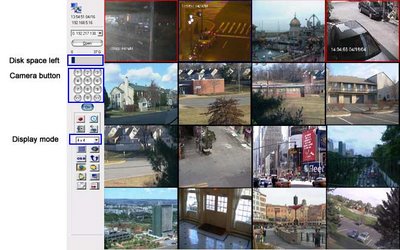Britain, the homeland of Magna Carta. Now the homeland of the most intrusive surveillance regime in the world.
During the Cold War we made a great deal of our western freedoms and contrasted our liberty with the likes of the Soviet Union that spied on its own people and maintained a vast network of informers. No sir, none of that for us. We were going to stand up for our rights, our freedoms.
Now that the Cold War threat is over so, apparently, are many of the freedoms we thought were our birthright. Britain, of all countries, is leading the way as Jason Benneto writes in The Guardian:
New technology and "invisible" techniques are being used to gather a growing amount of information about UK citizens. The level of surveillance will grow even further in the next 10 years, which could result in a growing number of people being discriminated against and excluded from society, says a report by the Information Commissioner, Richard Thomas.
Future developments could include microchip implants to identify and track individuals; facial recognition cameras fitted into lampposts; and unmanned surveillance aircraft, predict the report's authors.
Thomas said: "Two years ago I warned that we were in danger of sleepwalking into a surveillance society. Today I fear that we are in fact waking up to a surveillance society that is already all around us.
"'As ever more information is collected, shared and used, it intrudes into our private space and leads to decisions which directly influence people's lives.'
"'Mistakes can also easily be made with serious consequences - false matches and other cases of mistaken identity, inaccurate facts or inferences, suspicions taken as reality, and breaches of security. '
"The study - "A Surveillance Society"- concludes that routine monitoring is increasing in most areas of life.
"This includes the systematic tracking and recording of travel and use of public services; automated use of CCTV; analysis of buying habits and financial transactions; and the monitoring of telephone calls, e-mail and internet use in the workplace.
"The major surveillance techniques include:
* Video cameras monitoring buildings, shopping streets and residential areas. Automatic systems can now recognise vehicle number plates and faces.
* Software that analyses spending habits and the data sold to businesses. When we call service centres or apply for loans, insurance or mortgages, how quickly we are served and what we are offered can depend on what we spend, where we live and who we are
.
* Electronic tags to monitor offenders on probation
.
* DNA taken from those arrested by the police and placed on a database.
* Information stored about foreign travel.
* Smart cards in schools to determine where children are, what they eat or the books they borrow.
* Taps on telephones, e-mails and internet use that can screened for key words and phrases by British and US intelligence services.
"The Government also still plans to introduce a new system of biometric ID cards, including "biometrics" - fingerprints and iris scans - linked to a database of personal information.
"The group of academics who compiled the report have also predicted future trends in surveillance in the next decade. They include:
* Shoppers being scanned as they enter stores. This will be matched with loyalty card data to affect how they are handled, with big spenders given preferential treatment over others.
* Cars linked to global satellite navigation systems which will provide the quickest route to avoid congestion and allow police to monitor speed and to track selected cars.
* Employees subjected to biometric and psychometric tests plus lifestyle profiles with diagnostic health tests common place. Jobs are refused to those who are seen as a health risk.
* Schools using card systems to allow parents to monitor what their children eat, their attendance, academic and drug test results
* Facial recognition systems to monitor our movements using tiny cameras in lampposts and walls, and unmanned aircraft above."
What is happening in Britain serves as an invaluable wakeup call to Canadians. The British have already allowed their government far too much access to their privacy. We're going the same way. It's time we started talking about this. Or, maybe you would just prefer to let Stephen Harper decide how far government should go in snooping into your life.

No comments:
Post a Comment